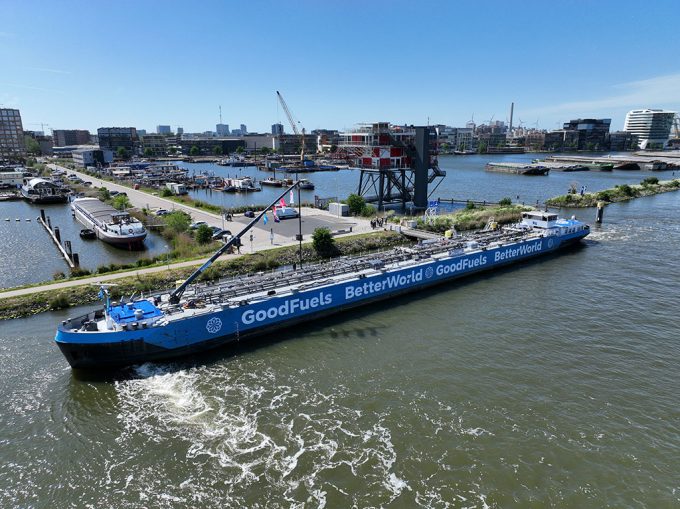COP29: UK PM announces 'determined commitment' to steep emissions cuts
Arriving at COP29 this week, UK prime minister Keir Starmer has unveiled a ‘nationally determined ...

In a positive step for biofuels, a distinct contender for carbon-neutral ship fuels along with green methanol and green ammonia, Goodfuels has signed an agreement with ITOCHU, the Japanese trading giant, to source and scale marine biofuel throughout the Asia-Pacific region.
The partners will initially target Singapore, the world bunkering capital, before moving on to establishing capacity in Japan and across the Asia-Pacific region.
GoodFuels specialises in marine biofuel drop-in replacements, which can be substituted for heavy fuel oil (HFO) and other ...
Asia-USEC shippers to lose 42% capacity in a surge of blanked sailings
Why ROI is driving a shift to smart reefer containers
USTR fees will lead to 'complete destabilisation' of container shipping alliances
New USTR port fees threaten shipping and global supply chains, says Cosco
Outlook for container shipping 'more uncertain now than at the onset of Covid'
Transpac container service closures mount
DHL Express suspends non-de minimis B2C parcels to US consumers

Comment on this article